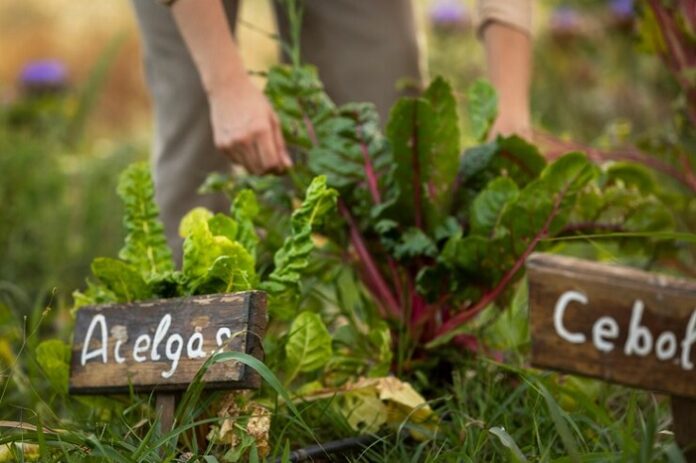
Imagine a vibrant garden bursting with life, where every leaf and petal contributes to a harmonious ecosystem. A place where sustainability isn’t just a concept but a living, breathing reality. Welcome to the world of eco-friendly gardening, where the joy of cultivating nature’s bounty intertwines seamlessly with environmental stewardship.
In an era where environmental consciousness is paramount, embracing eco-friendly gardening practices is not merely a trend but a conscious choice to nurture the planet we call home. By understanding the principles, planning meticulously, and implementing sustainable techniques, we can create flourishing gardens that serve as living testaments to our commitment to a greener future.
Overview
In an ever-changing world where the impact of human activities on the environment is becoming increasingly evident, the importance of adopting eco-friendly practices in all aspects of life cannot be overstated. Gardening, a beloved pastime for many, is no exception. As more individuals recognize the benefits of creating a sustainable and harmonious relationship with nature, eco-friendly gardening has emerged as a powerful solution to mitigate environmental challenges while fostering a deep connection with the natural world.
Embracing eco-friendly gardening not only contributes to the preservation of our planet’s precious resources but also offers a multitude of benefits for both personal well-being and the local ecosystem. From cultivating a thriving biodiversity to reducing our carbon footprint, this holistic approach to gardening empowers us to nurture and protect the very essence of life itself. As the world awakens to the urgency of sustainable practices, the growing interest in eco-friendly gardening serves as a beacon of hope, reminding us that even the smallest actions can have a profound impact on the environment we share.
Understanding Eco-Friendly Gardening
At its core, eco-friendly gardening is a comprehensive approach that prioritizes sustainable practices and minimizes the negative impact on the environment. It is a harmonious blend of traditional gardening techniques with modern, environmentally conscious methods. This approach encompasses a wide range of principles, each aimed at nurturing a balanced ecosystem while promoting biodiversity and reducing resource consumption.
The fundamental principles of eco-friendly gardening include the use of organic, non-toxic materials, the promotion of water conservation, the preservation of soil health, and the encouragement of beneficial insects and wildlife. By adhering to these principles, gardeners can create a self-sustaining, resilient garden that not only flourishes but also contributes to the overall well-being of the local environment.
In contrast to traditional gardening practices, which often rely heavily on synthetic fertilizers, pesticides, and excessive water usage, eco-friendly gardening takes a more holistic and sustainable approach. The negative impact of conventional gardening methods on soil health, water quality, and biodiversity has become increasingly evident, highlighting the urgent need for a paradigm shift in how we cultivate and nurture our gardens.
“Creating an eco-friendly garden is not just about plants; it’s about nurturing a sustainable ecosystem that benefits both nature and ourselves.”
Planning Your Eco-Friendly Garden
The journey towards an eco-friendly garden begins with thoughtful planning and preparation. Assessing your available space and determining the best location for your garden is crucial. Consider factors such as sunlight exposure, soil quality, and proximity to water sources. By carefully evaluating these elements, you can create an optimal environment for your plants to thrive while minimizing resource consumption.
When selecting plants for your eco-friendly garden, prioritize native species that are well-adapted to your local climate and soil conditions. Native plants not only require less water and maintenance but also serve as invaluable resources for local wildlife, fostering biodiversity and promoting a balanced ecosystem. Additionally, consider incorporating a diverse range of plant species, as variety is key to maintaining a thriving and resilient garden.
Soil health is a fundamental aspect of eco-friendly gardening, as it directly impacts the overall health and vitality of your plants. Embrace the practice of composting, which not only reduces waste but also provides a rich, organic source of nutrients for your garden. By creating your own compost from household and garden waste, you can ensure a continuous supply of nutrient-rich soil amendments, eliminating the need for synthetic fertilizers.
Implementing Sustainable Practices
Once your eco-friendly garden is planned and established, it’s time to embrace sustainable practices that will ensure its long-term success and minimize its environmental impact. Water conservation should be a top priority, as gardening activities can be water-intensive. Explore techniques like rainwater harvesting, which involves collecting and storing rainwater for later use in your garden. Additionally, consider implementing drip irrigation systems or mulching practices to reduce evaporative water loss and maintain soil moisture.
To protect the delicate balance of your garden ecosystem and reduce the need for harmful chemicals, embrace natural pest control methods. Encourage beneficial insects, such as ladybugs and lacewings, which feed on common garden pests. Incorporate companion planting strategies, where certain plants are grown together to deter pests and attract pollinators. Additionally, consider using organic pest control solutions derived from natural ingredients like neem oil or insecticidal soaps.
In addition to natural pest control, incorporate organic fertilizers into your gardening routine. These environmentally friendly alternatives, such as compost, manure, or plant-based fertilizers, provide essential nutrients to your plants without the harmful effects of synthetic chemicals. By nourishing the soil with organic matter, you not only promote plant health but also contribute to the long-term sustainability of your garden.
| Eco-Friendly Gardening Practice | Benefits |
|---|---|
| Rainwater Harvesting | Water Conservation |
| Composting | Soil Health |
| Native Plant Selection | Biodiversity |
| Natural Pest Control | Reduced Chemical Use |
| Organic Fertilizers | Sustainable Nutrient Management |
Maintaining Your Eco-Friendly Garden
Establishing an eco-friendly garden is just the beginning of a rewarding journey. To ensure its continued success and sustainability, ongoing care and maintenance are essential. Regular monitoring and adjustment of watering practices are crucial, as water needs can vary based on weather conditions, plant growth stages, and soil quality.
Encourage the presence of beneficial insects and wildlife in your garden by providing suitable habitats, such as bird houses, insect hotels, or strategically placed water sources. These natural allies not only contribute to pest control but also play vital roles in pollination and overall ecosystem balance.
Additionally, embrace the concept of continuous learning. Stay informed about the latest eco-friendly gardening techniques, attend local workshops or seminars, and connect with like-minded individuals in your community. By continuously expanding your knowledge and sharing experiences, you can refine your practices and contribute to the collective effort of promoting sustainable gardening.
Conclusion
As you embark on your eco-friendly gardening journey, remember that every step you take, no matter how small, contributes to a greener and more sustainable future. By embracing sustainable practices, cultivating native plants, and prioritizing water conservation and soil health, you are not only creating a beautiful and thriving garden but also leaving a lasting legacy for generations to come.
The rewards of eco-friendly gardening extend far beyond the beauty of vibrant blooms and lush foliage. It is a holistic approach that nurtures our connection with nature, promotes biodiversity, and minimizes our environmental footprint. Embrace the opportunity to be an agent of positive change, one garden at a time.
So, let’s roll up our sleeves, immerse ourselves in the rich soil, and embark on a transformative journey towards a greener, more sustainable future. Together, we can create eco-friendly gardens that serve as living testimonies to our commitment to preserving the planet we call home.








